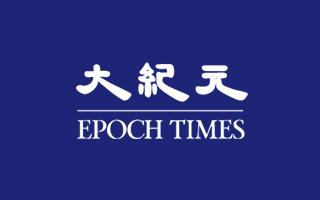【大纪元1月1日讯】中国最著名和勇敢的律师高智晟最近被中共政权以‘颠覆国家政权罪’判处有期徒刑三年,缓刑五年,剥夺政治权利一年。
从控诉的严重性来看,这一判决看来是一个轻判。特别是当我们和八九民主运动被判刑的70人,33个西藏人,40个网络记者和国际上普遍承认的最少有133宗教人士的判刑进行比较来看,这是一个轻判。那些人可能当参加2008年奥运会的人离开北京时仍会被关在监狱里。
自从胡锦涛和温家宝2003年上台后,人权在中国受到普遍的打压。只有很少的一部分律师能够帮助民众代理那些因为腐败、失地和其他滥用公众诚信的反对政府和党政官员的诉讼。
在高律师的案件中,就像在没有通知他的辩护律师和家人而由党组织来决定的秘密审判和主持审判的‘法官’来宣布一样,我们可以从三个方面来解释表面上看起来的‘仁慈的’判决:
首先,自从高律师在8月中旬被抓捕以来,国际社会施加了巨大的压力,媒体也进行了广泛的报导。世界上的很多人说把一个象曼德拉和甘地一样的律师关押到监狱中将严重影响北京的奥运会的举办。所谓的‘专家’说的公开的国际性游说来释放高律师会有副作用的说法被证明是错的。
其次,判决的本质清楚的说明中共政权在2008年8月8号召开的奥运会之前将一把达摩克利斯利剑悬在高律师的头上。如果高律师敢于继续反对集权政府和‘吃人的资本主义’官员们将把他仍到监狱里,并声称他违反了缓刑期的“政治权利”的这一条件。
轻判的原因应该和高律师给胡锦涛写了三封公开信,信中提到了宗教自由、独立司法、民主和法律而导致他的律师执业证在2005年被吊销,或是他的妻子耿和及他的两个年幼的孩子被国安人员持续跟踪、骚扰和恐吓,或是他的十三岁的女儿耿格被六个警察殴打没有多大关系。
最重要的原因是由于高智晟律师的独特的特点使得当局要小心对待。在中国以外高律师已经变得很出名,尤其最近要提名他做2007年的诺贝尔和平奖候选人。
高智晟,42岁,出生于中国西北部的一个窑洞,他贫穷的家庭一直居住在那里。最开始作为一个搬运工人,15岁那年成为一个井下的煤矿工人。后来参军,在军队中遇到了现在的妻子。然后完成高中教育,之后成为中共党员。退伍后,他以街头卖菜维生。并自学取得学历并成为律师。在1994年自学成材通过律师考试的比例是百分之一,他是其中的一员。
滥用职权的受害人不久在他的办公室中排队等待辩护,他开始在中国的声名狼藉的司法体系中赢得各种官司。到2001年,在国家级电视竞赛中司法部指定他为十大杰出律师。但是在四年后,当他变成这个政权的攻击目标后他被取消了这一称号。
他为失地农民、基督徒辩护,他同样为中共政权明令禁止任何律师代理的法轮功学员辩护。去年夏天,高律师曾经给我和麦塔斯写信,邀请我们到中国去调查法轮功学员被活摘器官的事件。在渥太华的中领馆没有给我们签证,之后不久高律师就被监禁。
他写给胡锦涛的三封公开信抗议大范围的虐待、酷刑和谋杀。这三封信使得他的律师事务所被政府关闭。不久他和他的家人被成群的警察跟踪。作为特殊的回应,他把他发起的绝食抗暴的活动张贴到他的网站上,并公开退出中共,成为一名基督徒。
尽管这个判决看起来比较仁慈,但是由于限制了他的言论自由这个判决是非常不适当的。这个判决应该被撤销,并恢复高律师的执业权利。对我们所有这些中国以外的人们,中国政府在赢得奥运会举办是承诺保障人权。但是它至今没有做到,对高律师和他的家人的对待将成为从现在开始到2008年夏天的一个最后的检验。
大卫.乔高是加拿大前亚太司司长,18种语言的麦塔斯-乔高报告可以在organharvestinvestigation.net上浏览。
附﹕英文原文
==================
Beijing Olympics and the ‘Lenient’Sentence for Gao Zhisheng
By David Kilgour
China’s probably best-known and one of its most courageous lawyers, Gao Zhisheng, was recently convicted of “inciting subversion” and given a three-year prison sentence. His removal to custody, however, was suspended for five years; his ‘political rights’ were removed for a year by the Beijing court.
Given the serious nature of the charge, the sentence at first glance appears light, especially given that 70 individuals sentenced from the democracy movement of Tiananmen Square in 1989, 33 Tibetans, 40 internet journalists and an internationally-accepted absolute minimum of 133 religious prisoners will probably still be in prison after the Olympic athletes have left Beijing in 2008.
There has also been a general crackdown on human rights across China since the government of Hu Jintao and Wen Jiabao took power in 2003. This has hit the tiny minority of lawyers brave enough to represent citizens with complaints against government and Party officials about corruption, farmland seizures and numerous other abuses of the public trust.
In Gao’s case, probably three factors explain the seemingly lenient sentence, which, like the verdict in the closed-door trial, was done without his lawyer of choice or family even being informed beforehand, determined by a party committee and merely announced by the presiding ‘judge’.
First, there has been considerable international pressure and media coverage since Gao was arrested in mid-August. Many across the world said that sending a Nelson Mandela/Mahatma Gandhi-like lawyer to prison would have a seriously negative impact on the Beijing Games. The “experts” who said that that public lobbying internationally for leniency would achieve the opposite were proven dramatically wrong.
Second, the nature of the sentence was clearly intended to position a Damoclean sword over Gao’s head during the government’s charm offensive to the world before the Olympic and Paralympic Games, which are to begin on August 8th 2008. If he speaks out against continuing totalitarian misgovernance and ‘carnivore capitalism’, officials can dispatch him to the silence of prison, claiming that he has violated the ‘political rights’ condition of his suspended sentence.
It matters little to Party leaders that Gao’s permit to practise law was revoked in 2005 because he wrote letters to President Hu about the need for religious freedom, independent judges, democracy and the rule of law; or that his wife, GengHe, and two young children have since been constantly followed, harassed and intimidated by public security personnel; or that their 13-year-old daughter, Gege, was recently beaten by six police.
The most important reason for the seeming caution exercised by the regime in this case probably stems from the unique character of Gao Zhisheng, who is becoming increasingly known outside China and has recently become the focus of a multinational movement to nominate him for this year’s Nobel Peace Prize.
Gao, 42, was born in the hillside cave in which his desperately poor family lived in northwestern China. Starting as a migrant worker and then going underground as a coal miner at the age of 15, he later joined the People’s Liberation Army, where he met his future wife, obtained a secondary education and became a member of the Communist party. On discharge, he became a street vendor, but also studied to become a lawyer, and was among the only one percent of the self-trained candidates who passed the bar exam in 1994.
Victims of official abuse were soon lining up at his office and he began to win cases against all odds in China’s notorious court system. By 2001, the Ministry of Justice named him one of ten “honour lawyers” in a national television competition, although it rescinded the title four years later when he became a target of the regime.
His defense of farmers losing their land and Christians was serious enough, but doing the same for Falun Gong practitioners, when the regime had banned any lawyer from even representing them, was completely intolerable. It was Gao who wrote to David Matas and me last summer, inviting us to come to China to investigate the stealing of vital organs from Falun Gong prisoners of conscience. No visa was subsequently issued by its embassy in Ottawa to do so; he was detained not long afterwards.
His three open letters to President Hu, protesting a range of abuses, including specific cases of torture and murder, caused his law office to be closed by the government. Throngs of police soon began to follow him and his family day and night. In a characteristic response, he posted the details of this campaign on his website, resigned from the Party and later became a publicly-declared Christian.
Although seemingly lenient, the sentence is thus wildly inappropriate as an undue restraint on freedom of speech and should be lifted completely as well as restoring his right to practise his profession. The issue for all of us outside China is whether the commitment of the government of China to improve human rights, given in its bid to win the Games, is to have any substance. It has certainly had none to date. The treatment afforded to Gao and his family between now and the summer of 2008 will provide one good litmus test.
David kilgour is a former Secretary of State (Asia-Pacific) of Canada. The Matas-Kilgour report can be accessed in 18 languages at organharvestinvestigation.net.
(http://www.dajiyuan.com)


